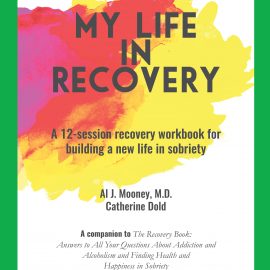Library
 Resources on Addiction, Treatment, and Recovery
Resources on Addiction, Treatment, and Recovery
What can you find in the Library?
We’d like the Library to be a one-stop shop for information and resources on addiction, treatment, and recovery. We’ll be building sections for different types of media, topic areas, and audiences, just like a real-world library.
You can view the complete feed of all RecoverySI articles, resources, videos and more here.
Check out our first “New Addition”–the Bookshelf!
Mandated vs. Voluntary Treatment
I suspect that the methodology for measuring success was far too narrow. Focused entirely on crime, they missed a host of other gains from participation in treatment.
Topics: criminal courts, outcomes, research
My Life in Recovery
They soon realize they need to learn how to stay sober, while also repairing relationships, restoring health, and picking up the pieces of a career.
Topics: book plug, tools for recovery
Don’t Forget Denial
It seems to me that it’s entirely possible for one person to be lying, ambivalent, and in denial at the same time.
Topics: counseling skills, defense mechanisms, resistance manipulation ambivalence
“S/he Did it AGAIN?” Repeat DUI Offenders
A criminal defense attorney complained to me that his clients didn’t begin to take things seriously until the second or even third offense.
Topics: consequences, DUI/DWI, program development
The View Depends on Where You Stand
This isn’t a problem a physician can deal with comfortably in the context of a 12-15 minute office visit.
Topics: getting help, opioids, prescription medications, recognizing addiction, research
A Place for Placebo?
Might be that clinicians can teach patients to activate their own body’s placebo response, in order to feel better.
Topics: opioids, research, therapies and tools
Diagnosing Cannabis Use Disorder: Updated
It certainly makes sense that if you suffer from a major mental illness, you should stay away from pot.
Topics: assessment, cannabis, diagnosis
Affordable
As a rule, the more services that are provided through the program itself, rather than by referral out, the better the quality of case management, and the higher the rate of retention in treatment.
Topics: needs assessment, policy, program development



















